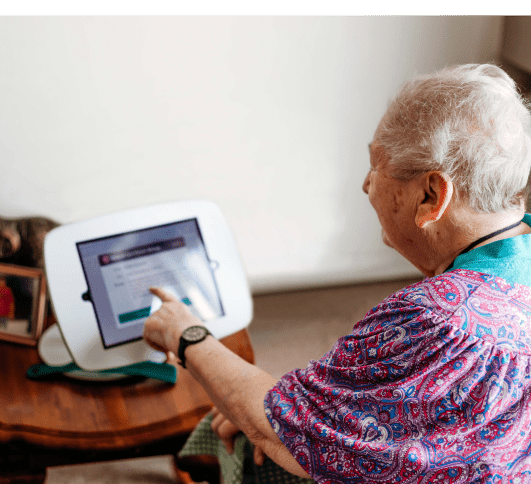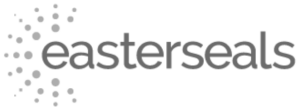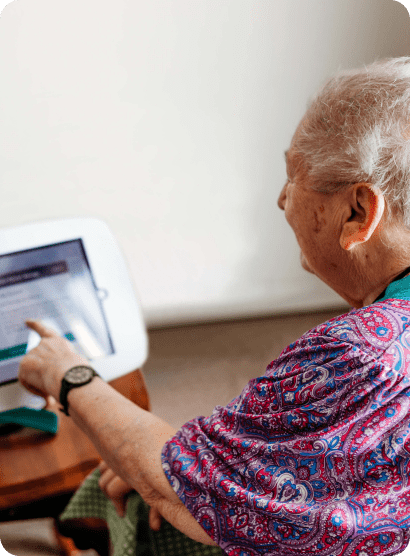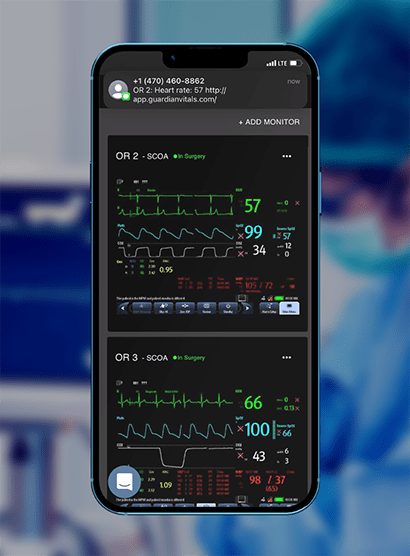Remote Patient Monitoring (RPM)
Enables continuous monitoring of patients’ vital signs and health status remotely through connected devices, facilitating timely telehealth interventions by healthcare providers and reducing the frequency of in-person visits.
Telehealth Services
Allows patients to receive medical consultations and healthcare services through digital communication tools, significantly expanding access to care, especially for patients in remote or underserved regions.
Clinical Decision Support
Incorporates advanced algorithms and data analytics to provide healthcare providers with actionable insights and decision-making support, improving the accuracy of diagnoses and the effectiveness of treatment plans.
Medication Management
Utilizes mobile applications to help patients track their medication schedules, receive dosage reminders, and access information about drug interactions and side effects, thereby enhancing adherence and safety.
Clinical Communication and Collaboration
Facilitates secure messaging, file sharing, and real-time communication among medical professionals, enabling more efficient care coordination and information exchange within clinical teams.
Patient Education and Engagement
Provides personalized educational materials and interactive tools through mobile platforms to help patients understand their health conditions and treatment options, fostering better engagement and self-care practices.
Personal Health Records (PHR)
Empowers patients to access, update, and manage their own medical records on mobile devices, ensuring they have accurate and complete information when consulting with different healthcare providers.
Appointment Scheduling and Management
Enables patients to book, modify, and manage medical appointments with ease, incorporating features such as automatic reminders and calendar integration to reduce missed appointments and optimize clinic schedules.
Health and Wellness Tracking
Supports health promotion and disease prevention by allowing users to monitor physical activities, dietary habits, sleep patterns, and other lifestyle factors, providing tailored feedback and health recommendations.
Mobile Requirements in Healthcare
Reliability and Performance
Data Security
Paramount in healthcare, where sensitive patient data must be protected from breaches. Mobile software must include advanced encryption for data at rest and in transit, robust user authentication protocols, and secure API integrations to prevent unauthorized access and ensure data integrity.
Regulatory Compliance
Mobile healthcare applications must rigorously comply with local and international regulations such as HIPAA in the U.S. or GDPR in Europe. This involves strict protocols for data handling, storage, and processing to protect patient privacy and ensure the app meets legal standards.
Reliability and Performance
Healthcare applications must function reliably under various conditions, including high demand and diverse network environments. This ensures continuous access to critical health information and functionality, essential for patient care and emergency responses.
Real-time Functionality
Many healthcare applications require the capability to update and monitor data in real time, such as in situations involving patient monitoring or urgent health alerts. It is crucial that these functionalities operate without delays to ensure timely care and interventions.
Interoperability
Effective healthcare mobile applications need to integrate seamlessly with existing healthcare systems like Electronic Health Records (EHRs). This interoperability is essential for ensuring consistent patient data across platforms, facilitating accurate diagnostics, treatment planning, and continuity of care.
User Experience (UX)
The design of healthcare mobile apps must be intuitive and accessible, considering the diverse technological proficiency of users including patients, doctors, and healthcare staff. Accessibility features for users with disabilities and an interface that simplifies complex medical information are crucial for effective use.
Integration Capabilities
Beyond general interoperability, mobile healthcare software should integrate smoothly with various clinical management systems to ensure that data flows seamlessly without losing accuracy or integrity. This includes synchronization with diagnostic tools, billing systems, and patient management software.
Patient Engagement
Mobile applications should actively engage patients by providing tools for managing their health, such as medication reminders, appointment scheduling, and direct communication channels with healthcare providers. Engaging and user-friendly interfaces can significantly enhance patient compliance and health outcome monitoring.
Scalability
As healthcare providers grow and evolve, so too must their mobile applications. Scalability in the software allows for an increasing number of users, more complex functionalities, and larger data volumes without compromising performance.











